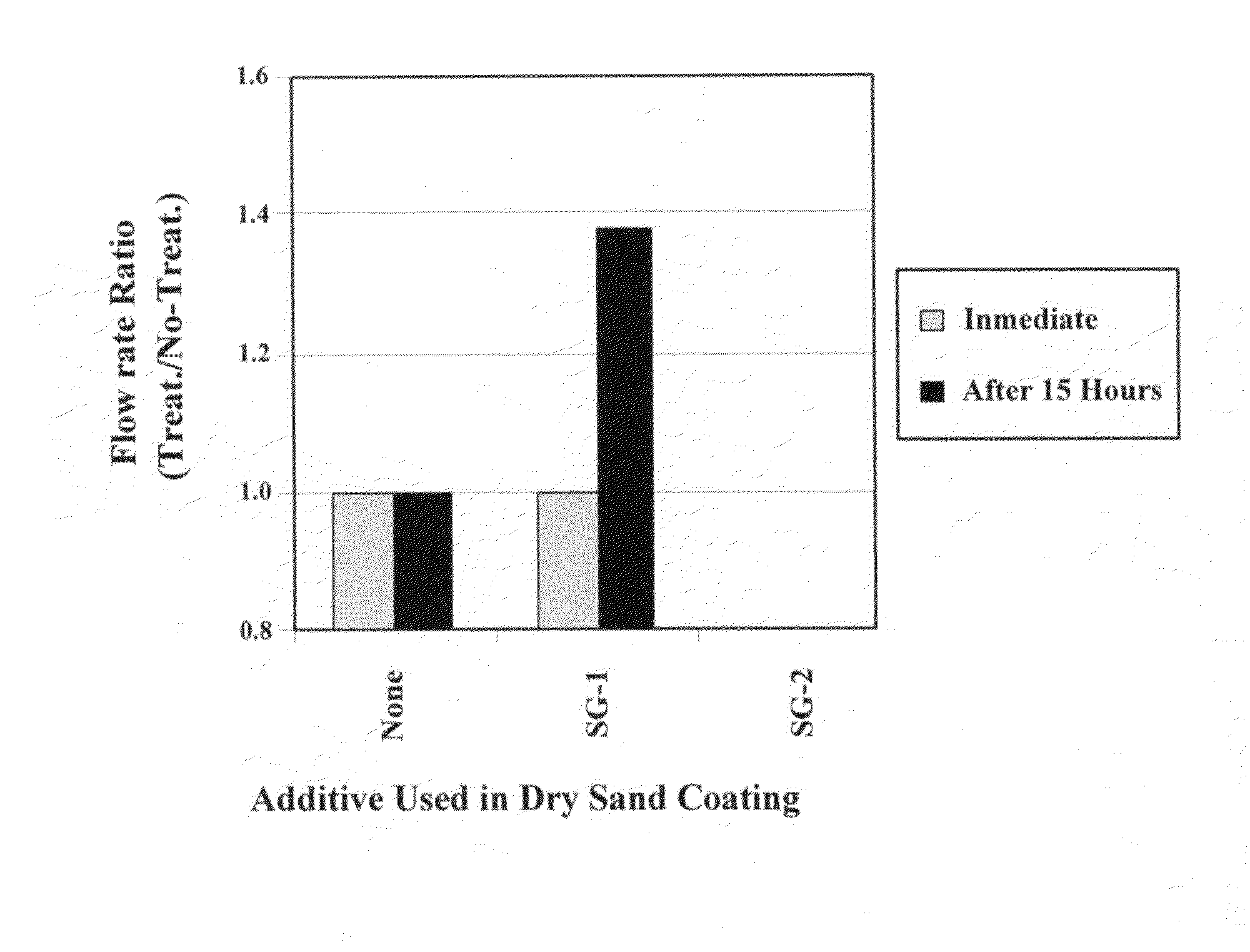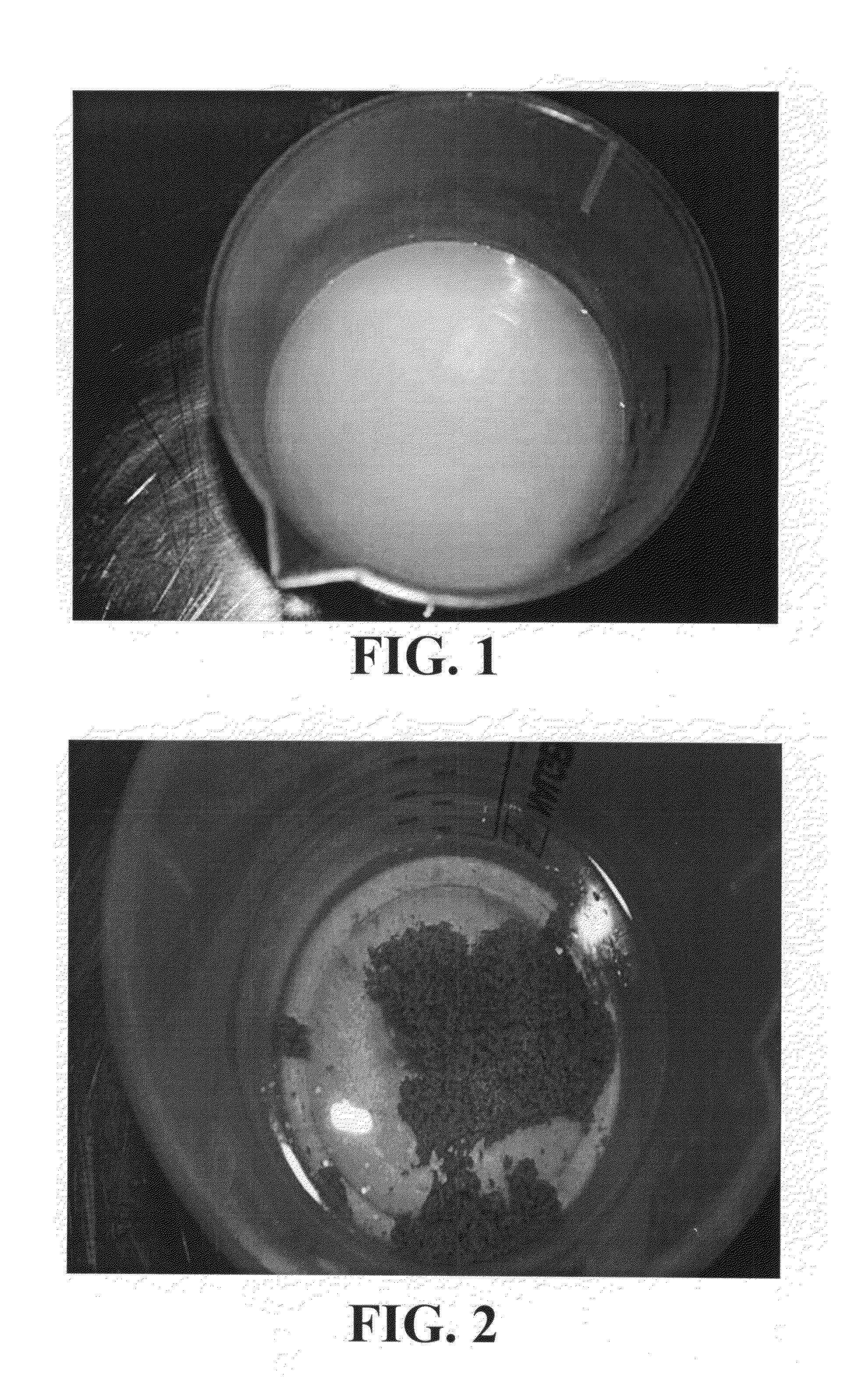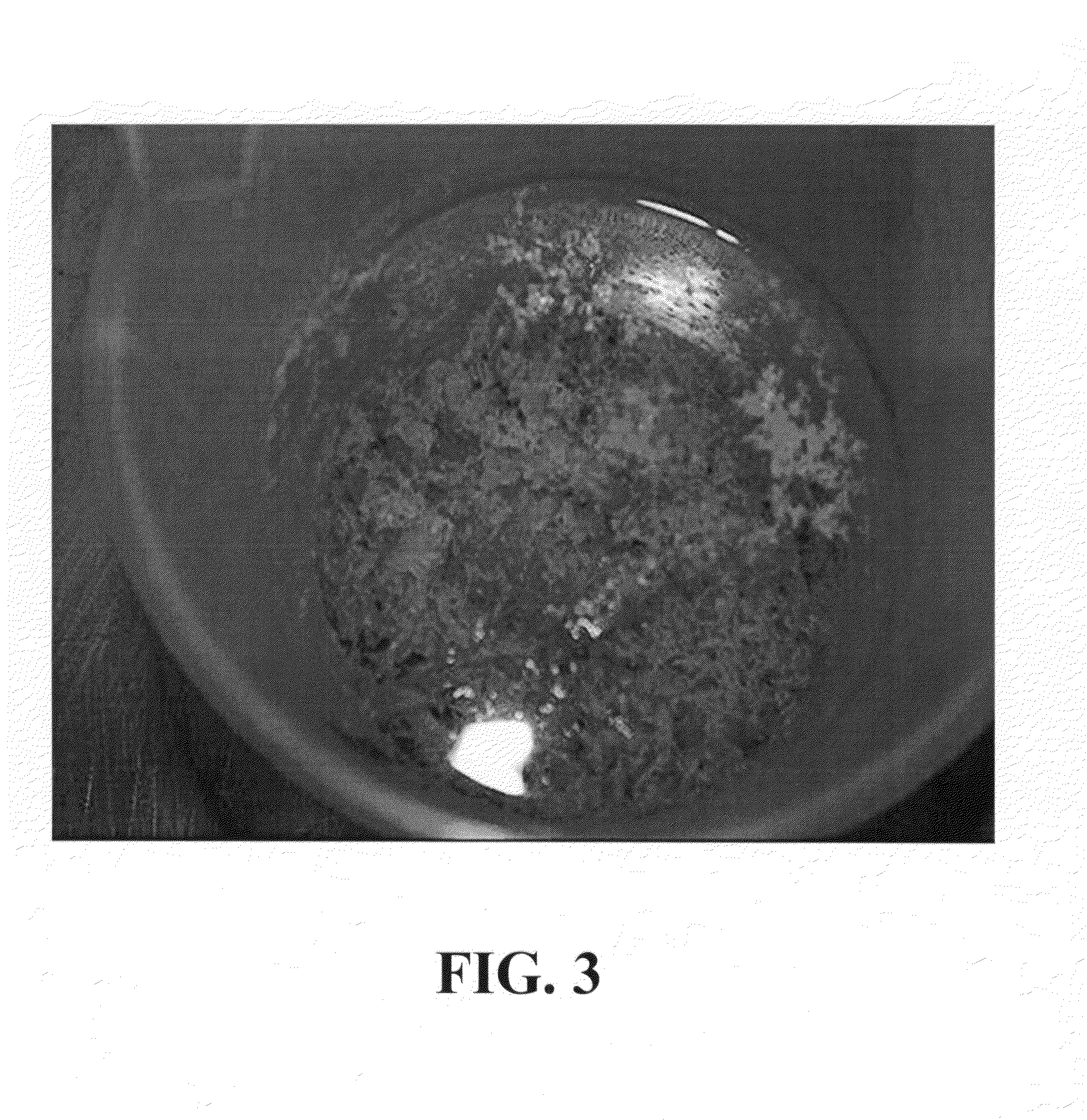Sand aggregating reagents, modified sands, and methods for making and using same
a technology of sand and sand aggregation, which is applied in the direction of silicon compounds, sealing/packing, and wellbore/well accessories, etc., can solve the problems of difficult handling, pouring and processing of sand and other particulate metal oxide-containing solids, and achieve the effect of improving aggregation properties and improving particulate adhesion or affinity properties
- Summary
- Abstract
- Description
- Claims
- Application Information
AI Technical Summary
Benefits of technology
Problems solved by technology
Method used
Image
Examples
example 1
[0127]This example illustrates general procedures used in the preparation and testing of sand treated with an aggregating composition of this invention.
[0128]700 grams of 20 / 40 sand were pallet mixed at 1000 rpm in distilled water including 2 wt. % KCl at a sand to solution concentration of 1 lb / gal for 15 minutes. An aggregating composition of this invention was then added to the sand slurry in a concentration ranging from 0 to 8 gptg. The resulting slurry was mixed for 15 minutes at 1000 rpm. The treated sand slurry was then poured into a PVC flow rate cylinder and flushed with at least 5 volumes of fresh 2 wt. KCl. The flow rate of the 2 wt. % KCl solution was then measured through the resulting treated sand pack.
example 2
[0129]This example illustrates the other set of general procedures used in the preparation and testing of sand treated with an aggregating compositions of this invention.
[0130]700 grams of 20 / 40 sand was pre-treated with an aggregating composition of this invention at concentration of 1.5, 3.0 and 5.0% v / w. The composition was stirred into the dry sand using a spatula for 5 minutes. After dry mixing, a 2.0 wt. % KCl solution was added with stirring. The resulting slurry of treated sand was poured into a PVC flow rate cylinder and washed with at least 5 volumes of 2.0 wt. % KCl. The flow rate of the 2 wt. % KCl solution was then measured through the sand pack.
[0131]The following aggregating compositions were prepared and test according to the procedures described in Examples 1 and 2.
[0132]
wt. %SG-1ComponentsEthylene Glycol Monobutyl Ether4.16Alkylamidomine (DTO / AEP)7.20Fatty Acid Pitch14.40Deg40 (diethylene glycol)2.00Dodecyl benzene sulfonic Acid8.00Methyl diethanol amine (MDEA) bot...
PUM
| Property | Measurement | Unit |
|---|---|---|
| concentration | aaaaa | aaaaa |
| concentration | aaaaa | aaaaa |
| Zeta Potential | aaaaa | aaaaa |
Abstract
Description
Claims
Application Information
 Login to View More
Login to View More - R&D
- Intellectual Property
- Life Sciences
- Materials
- Tech Scout
- Unparalleled Data Quality
- Higher Quality Content
- 60% Fewer Hallucinations
Browse by: Latest US Patents, China's latest patents, Technical Efficacy Thesaurus, Application Domain, Technology Topic, Popular Technical Reports.
© 2025 PatSnap. All rights reserved.Legal|Privacy policy|Modern Slavery Act Transparency Statement|Sitemap|About US| Contact US: help@patsnap.com



